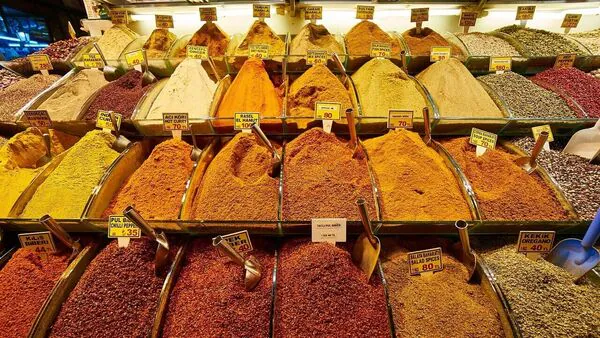
Food Safety Watchdog Sniffs For Spice Adulteration
India's national food safety regulator has ordered an enforcement blitz on spice manufacturers across the country, in a move to combat adulteration and safeguard public health. The drive will specifically target black pepper, cardamom, chilli, cinnamon, coriander, cumin and turmeric, all key ingredients in Indian recipes.
The action by the Food Safety and Standards Authority (FSSAI) targets a crucial part of India's food economy, with the domestic spice market valued at over $20 billion in 2024. The month-long drive, scheduled to begin on 1 October, comes as the country enters its peak festive season and follows a prior surveillance that found widespread non-compliance with quality and safety standards.
The push for stricter controls is seen as both a public health imperative and a strategic effort to protect India's global reputation as a major spice exporter. This reputation has recently been dented by international scrutiny, including a high-profile recall of Indian spice products in Singapore last year due to the presence of ethylene oxide, a known carcinogen.
Also Read | A new 'Ayurveda Ahaara' category for FSSAI licence-food from ancient text A call for actionAn FSSAI communication on 17 September outlines the scope of the operation. The directive, sent to food safety commissioners across all states and union territories, orders inspections and sampling to be limited to manufacturing units "to check the compliance at the source."
The FSSAI has mandated that all samples drawn during the drive must be sent to accredited laboratories with a full scope for testing all prescribed parameters. The consolidated report on the findings is due by 20 November, highlighting the urgency and seriousness of the crackdown.
An FSSAI spokesperson did not respond to queries. Spice companies such as Tata Sampann, Catch, Zoff Foods, and Somaiya Foods declined to comment, while MTR Foods, Nirappara, Galaji Spices and Brahmins did not respond to queries.
Also Read | India's bottled water boom meets a safety overhau The stakesFor the government, the drive is a dual-pronged effort to protect its citizens and its economic interests.
According to medical experts, the consumption of adulterated spices can lead to serious health issues. Dr. Pavan Hanchanale, a consultant in gastroenterology and liver transplants at Jupiter Hospital in Pune, highlighted the risks associated with chemical adulterants like ethylene oxide, which can increase the risk of cancer and damage DNA and the nervous system.
"While spices are at the heart of Indian cuisine and traditions, growing health concerns over their quality and contamination pose serious health risks," Dr. Hanchanale noted. He stressed the need for "stringent quality control at every stage of the process right from production until they reach the end user."
An official familiar with the matter stated that the FSSAI's crackdown is crucial for "upholding the country's food safety standards and protecting its reputation as a leading global spice exporter." The official emphasized that a strong domestic market with high-quality standards is essential to "restore trust in international markets and prevent future recalls that can harm India's export revenues." The move is also seen as a necessary step toward the long-term sustainability of the industry. By eliminating "dishonest manufacturers," the FSSAI aims to "create a more level playing field" and benefit all genuine producers.
Also Read | Dairy firm faces the music as ghee falls short of purity standard The precursorThe enforcement action is a direct consequence of FSSAI's countrywide spice surveillance November 2024 and February 2025. The surveillance uncovered a number of non-compliant products, particularly concerning quality parameters, microbial counts, and labelling accuracy. The Singapore incident also heightened the pressure on Indian authorities to act.
The enforcement drive marks a significant push by Indian regulators to ensure the safety and authenticity of one of the country's most iconic products, sending a strong message to both domestic manufacturers and international markets about its commitment to quality. The results of the drive will provide a clear picture of the scale of the problem and the effectiveness of the FSSAI's intervention.
Legal Disclaimer:
MENAFN provides the
information “as is” without warranty of any kind. We do not accept
any responsibility or liability for the accuracy, content, images,
videos, licenses, completeness, legality, or reliability of the information
contained in this article. If you have any complaints or copyright
issues related to this article, kindly contact the provider above.


















Comments
No comment